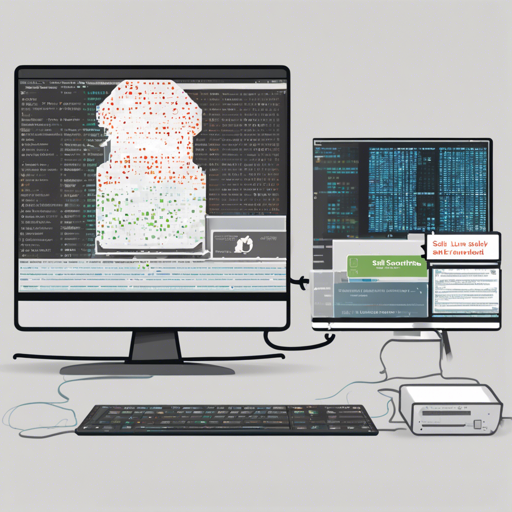In today’s fast-paced technological world, ensuring the security of our systems is paramount. Enter Salt-Scanner: a potent Linux vulnerability scanner powered by the Vulners Audit API and Salt Open. With Slack notifications and JIRA integration, Salt-Scanner brings vulnerability assessment to your fingertips. This guide will walk you through the installation, usage, and troubleshooting of this invaluable tool.
Features of Salt-Scanner
- Slack notification and report upload
- JIRA integration
- OpsGenie integration
Requirements
To get started with Salt-Scanner, ensure your environment meets the following requirements:
- Salt Open 2016.11.x (both salt-master and salt-minion)
- Python 2.7
- Salt (consider installing gcc, gcc-c++, and python development libraries as they may be required)
- slackclient
- jira
- opsgenie-sdk
Note: Ensure that your Salt Master and Minion versions are the same. For Salt version 2017.7.x, replace expr_form with tgt_type in the salt-scanner.py file.
Usage
Using Salt-Scanner is straightforward! Here’s how you can run it:
$ .salt-scanner.py -hWhen you enter the command, the following help menu will display:
usage: salt-scanner.py [-h] [-t TARGET_HOSTS] [-tF glob,list,grain]
[-oN OS_NAME] [-oV OS_VERSION]To perform a scan of all target hosts, you would use the command:
$ sudo SLACK_API_TOKEN=EXAMPLETOKEN .salt-scanner.py -t *Understanding the Output
Imagine Salt-Scanner as a meticulous chef inspecting an array of dishes (your packages) for any problems (vulnerabilities). The scanner runs through each dish, counting the total, identifying any that are out of order, and reporting its findings promptly.
The output might display results like:
+ Detected Operating Systems:
- OS Name: centos, OS Version: 7
+ Getting the Installed Packages...
+ Started Scanning 10.10.10.55...
- Total Packages: 357
- 6 Vulnerable Packages Found - Severity: Low
+ Started Scanning 10.10.10.56...
- Total Packages: 392
- 6 Vulnerable Packages Found - Severity: CriticalThis detailed report includes the total number of packages scanned, the number of vulnerabilities discovered, and their severity levels, ensuring you know exactly where to focus your remediation efforts.
Troubleshooting Common Issues
While using Salt-Scanner should be smooth sailing, a few bumps may arise. Here are some troubleshooting ideas:
- Error: Salt Master and Minion version mismatch. Make sure that both your salt-master and salt-minion are using the same version of Salt Open.
- Scanning does not return expected results. Ensure that you have setup and configured your environment properly as per the requirements and check your network connectivity.
- JIRA issues not being created. Double-check your JIRA integration settings and the presence of required libraries.
For more insights, updates, or to collaborate on AI development projects, stay connected with fxis.ai.
Future Enhancements
The Salt-Scanner team has plans to enhance the script by:
- Cleaning up code and improving error handling
- Utilizing Salt Grains to obtain OS information and installed packages automatically
Conclusion
When it comes to security, knowledge is power. With tools like Salt-Scanner, you can stay on top of vulnerabilities quickly and effectively. At fxis.ai, we believe that such advancements are crucial for the future of AI, as they enable more comprehensive and effective solutions. Our team is continually exploring new methodologies to push the envelope in artificial intelligence, ensuring that our clients benefit from the latest technological innovations.
Visual Reference
Here’s an example of how a Slack alert from Salt-Scanner appears:

Final Thoughts
Using Salt-Scanner positions you to protect your Linux environment effectively. Stay vigilant, and happy scanning!

